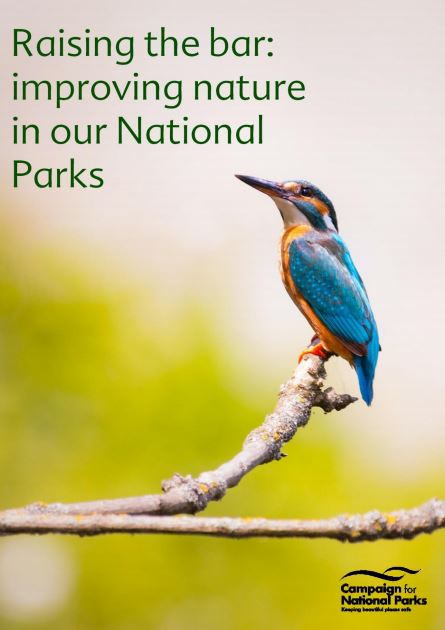“We must ensure momentum continues”
30 September 2019
Corinne Pluchino of Campaign for National Parks reflects on the Glover review and the charity’s work at the forefront of National Park issues.
I have now been at Campaign for National Parks for nearly six months, and have taken part in several events to mark the 70thanniversary of the 1949 Act that created the legal framework for the National Parks. Even now, however, I am still deeply struck by the vision of the individuals who campaigned to create these remarkable places. I am equally struck by the farsightedness of the governments that brought this vision to life, first by continuing to develop the idea during the Second World War, and then introducing the necessary legislation to Parliament in 1949.
It is worth bearing this history in mind in the light of Julian Glover’s Review of Designated Landscapes which was published last week. An ambitious, wide-ranging document, its basic thrust is summed up in the introduction: “Though there’s much that is good, we should not be satisfied with what we have at the moment. It falls far short of what can be achieved and what the people of our country want.” The review sets out 27 recommendations for change, which we are now examining in detail, largely focused on National Parks and Areas of Outstanding Natural Beauty (AONBs). Many of them are far-reaching and some of them are controversial, and they seek to recapture “the national zeal of the founding mission”.
We welcome the spirit of the Glover Review and were pleased to see it focus on two core themes which are also at the heart of our work. The first is the need to take bold and ambitious steps to reverse the decline in nature that has taken place in the National Parks. Our research report Raising the Bar, published last year, highlighted the extent of the decline in wildlife and natural habitats that has taken place in what are supposed to be protected places. We share the review’s view that National Parks and other designated landscapes should be leading the way in terms of nature recovery, and believe that both policy and practice should be more ambitious, and more closely evaluated, at every level.
The second key theme is the vital importance of engaging people, particularly under-represented communities, with these special places. We were particularly pleased to see the call for every child to have the chance to spend time in beautiful landscapes, an idea we have also promoted, but our ambition is greater than that. We believe that everyone, regardless of their age and background, should be introduced to these precious places. We welcome Julian Glover’s proposal that this should be part of a wider vision to support health and wellbeing across local communities and connect people with the natural world.
The essential role of public transport is also an issue we have campaigned on, most recently in our report National Parks for All, and we welcome the review’s calls for new models of public transport to be tested. This is a critical issue, both for visitors and for those who live and work in the National Parks. The review highlights the issue of ensuring that increased numbers of visitors are balanced with the need for sustainable forms of tourism. It also emphasises the importance of supporting local communities, for example by creating a n ew National Landscape Housing Association to build affordable homes.
The review includes a third theme, which underpins nearly all the recommendations, and is clearly seen as essential by the review panel. A wide range of reforms to the structures and governance of National Park Authorities (NPAs) and AONBs is proposed, including a new National Landscape Service (NLS). Its remit would include developing a strategic vision for national landscapes, ensuring their key objectives are delivered, and acting as their voice in government. It also proposes that new income streams, outside government funding, should also be developed.
We are very pleased by the number of our recommendations that have been incorporated into the Glover Review and grateful to all the local park societies that shared their perspectives with us as we developed our submission. At well over 80 years old we are still at the very forefront of the fight to make National Parks better for everyone.
The next step rests with the Government. The report’s ambition was broadly welcomed by Theresa Villiers, the Environment Secretary, but we must ensure the momentum continues. Furthermore, as the report acknowledges, our National Parks and other designated landscapes are also shaped by issues beyond the review, such as planned reforms to agricultural payments when we leave the EU.
We believe National Parks are a remarkable legacy of the post-war period and that they still have a vital contribution to make to the nation. However, there is a lot of work to do. We hope you will join us to ensure this renewed focus on our most beautiful landscapes is not lost.
By Corinne Pluchino
Chief Executive of Campaign for National Parks

